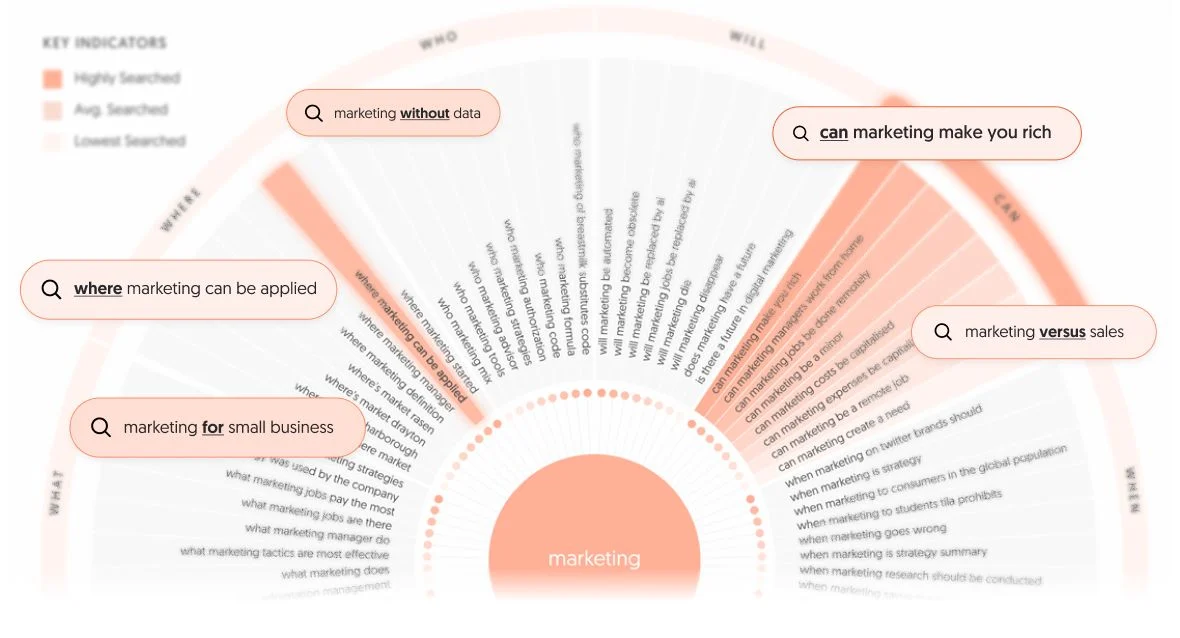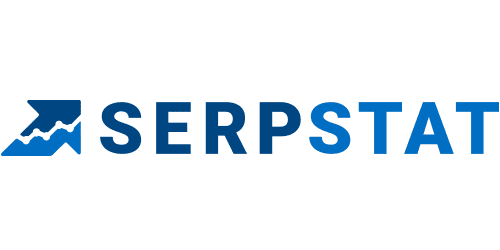[This is a test site and all posts are generated with ChatGPT unless indicated otherwise.]
What is keyword research?
Keyword research is a fundamental aspect of Search Engine Optimization (SEO) that involves identifying the specific words and phrases people use when searching for information online. By understanding and targeting the right keywords, businesses, and website owners can improve their visibility in search engine results and attract relevant organic traffic. Keyword research helps uncover valuable insights into user intent, market trends, and competition, allowing SEO practitioners to optimize their content and webpages for maximum visibility and relevance.
Keyword research tools play a crucial role in streamlining and enhancing the keyword research process. These tools provide valuable data and analytics to help SEO professionals identify the most relevant keywords and assess their potential for driving traffic and conversions. With features like search volume analysis, keyword difficulty assessment, competitor analysis, and content suggestions, these tools empower marketers to make informed decisions and develop effective SEO strategies.
The purpose of this post is to provide readers with an extensive compilation and review of various SEO keyword research tools available in the market. We will explore a range of both free and paid tools, highlighting their features, pros, and cons. By presenting a comprehensive list of tools and sharing valuable insights, this post aims to assist readers in selecting the most suitable keyword research tool for their specific needs and budget. Whether you are a beginner or an experienced SEO practitioner, this resource will serve as a valuable guide to optimize your keyword research process and achieve better search engine rankings.
Basic Concepts of Keyword Research
1. Keywords
Keywords are specific words or phrases that users enter into search engines when looking for information, products, or services. In the context of SEO, keywords are essential because they help search engines understand the content of webpages and match them to relevant user queries.
By optimizing webpages with the right keywords, businesses can increase their visibility in search engine results and attract targeted organic traffic. Keyword research is the process of identifying and selecting the most relevant and high-performing keywords to optimize website content and improve search engine rankings.

2. Different types of keywords (short-tail, long-tail, LSI, etc.)
There are various types of keywords that SEO practitioners consider during keyword research. Short-tail keywords are brief and general terms that have a high search volume but are often highly competitive. Long-tail keywords are longer and more specific phrases that have a lower search volume but are more targeted and usually less competitive.
Latent Semantic Indexing (LSI) keywords are related terms and phrases that search engines associate with a particular topic. LSI keywords help search engines understand the context and relevance of content.
3. Understanding search volume, competition, and keyword difficulty
When conducting keyword research, it’s essential to consider factors such as search volume, competition, and keyword difficulty. Search volume indicates how frequently a keyword is searched for in a given period. High search volume keywords often have more competition, while low search volume keywords may have less competition but also attract less traffic.
Competition refers to the number of websites and businesses targeting the same keyword. Keyword difficulty assesses the level of competition and the effort required to rank for a specific keyword. Tools can provide insights into these metrics, helping SEO practitioners identify valuable keywords with manageable competition and high search volume.
Understanding these basic concepts of keyword research will lay a solid foundation for effectively optimizing website content and improving search engine visibility.
5 Free SEO Keyword Research Tools
1. Ubersuggest

Features and functionalities
- Ubersuggest offers keyword research, competitor analysis, and content ideas.
- It provides keyword suggestions, search volume data, and keyword difficulty analysis.
- The tool offers domain overview, backlink analysis, and competitor ranking insights.
Pros and cons
Pros: User-friendly interface, comprehensive keyword data, and competitor analysis features.
Cons: Some advanced features require a paid subscription and limited daily usage for free users.
How to use the tool effectively
- Enter a keyword to get suggestions, analyze search volume, and evaluate keyword difficulty.
- Explore competitor domains to gain insights into their organic keywords and backlink profiles.
- Utilize content ideas feature for generating topic suggestions and related keywords.
2. Google Keyword Planner

Features and functionalities
- Google Keyword Planner is a powerful tool within Google Ads platform.
- It provides keyword suggestions, search volume data, and keyword performance insights.
- The tool offers historical statistics, forecast trends, and bid estimates for keywords.
Pros and cons
Pros: Accurate search volume data, integration with Google Ads, free to use.
Cons: More focused on PPC campaigns, limited in terms of competition analysis.
How to use the tool effectively
- Enter a keyword or website to generate keyword ideas and assess search volume.
- Analyze keyword trends and historical data to understand seasonal or long-term variations.
- Utilize the tool to identify bid estimates and plan keyword-focused PPC campaigns.
3. AnswerThePublic

Features and functionalities
- AnswerThePublic focuses on generating keyword ideas based on questions and phrases.
- It provides visualizations of keyword suggestions in the form of a search cloud.
- The tool offers insights into popular searches, related queries, and prepositions.
Pros and cons
Pros: Unique approach to keyword research, great for content ideation, free to use.
Cons: Limited in terms of search volume data, no keyword difficulty analysis.
How to use the tool effectively
- Enter a keyword to discover a wide range of related questions and phrases.
- Explore the search cloud visualization to identify popular and trending queries.
- Use the insights to create content that directly addresses the questions and concerns of the target audience.
4. Keyword Surfer

Features and functionalities
- Keyword Surfer is a browser extension that provides keyword data within search engine result pages (SERPs).
- It offers search volume, similar keywords, and word count for the top-ranking pages.
- The tool also provides backlink and domain authority information for SERP analysis.
Pros and cons
Pros: Convenient keyword data integration with search results, quick insights, free to use.
Cons: Limited to Google search results, lacks comprehensive keyword research functionalities.
How to use the tool effectively
- Install the browser extension and perform searches on Google to access keyword data directly.
- Analyze search volume, similar keywords, and word count to understand SERP patterns.
- Utilize the backlink and domain authority information for competitor analysis and link-building opportunities.
5. Keyword Tool

Features and functionalities
- Keyword Tool provides keyword suggestions based on Google Autocomplete.
- It offers long-tail keyword variations and generates keyword ideas for multiple platforms
- The tool provides search volume data and keyword competition indicators.
Pros and cons
Pros: Fast and straightforward keyword suggestions, supports various platforms, free to use.
Cons: Limited in terms of advanced features and data insights.
How to use the tool effectively
- Select the desired platform (e.g., Google, YouTube, Amazon) for keyword research.
- Enter a seed keyword to generate a list of relevant long-tail keyword variations.
- Analyze search volume and keyword competition to identify valuable keywords for your content or campaigns.
Key takeaways and comparisons between the free tools
- Ubersuggest offers a comprehensive set of features for keyword research and competitor analysis.
- Google Keyword Planner provides accurate search volume data and integration with Google Ads.
- AnswerThePublic offers a unique approach to content ideation based on question-based keywords.
- Keyword Surfer provides quick keyword insights directly within search engine result pages.
- Keyword Tool offers fast keyword suggestions for various platforms but with limited advanced features.
When choosing the right tool, consider your specific requirements, such as search volume accuracy, competitor analysis, content ideation, or integration with other platforms. Each tool has its strengths and limitations, so it’s beneficial to experiment with multiple tools to find the best fit for your keyword research needs.
5 Paid SEO Keyword Research Tools
1. SEMrush


Features and functionalities
- SEMrush offers comprehensive keyword research, competitor analysis, and site auditing.
- It provides keyword suggestions, search volume data, and keyword difficulty analysis.
- The tool offers competitor analysis, backlink analysis, and content optimization recommendations.
Pros and cons
Pros: Extensive features for SEO and digital marketing, accurate data, in-depth competitor analysis.
Cons: Relatively high pricing for full access, learning curve for beginners.
How to use the tool effectively
- Enter a keyword to analyze its search volume, keyword difficulty, and related keywords.
- Utilize competitor analysis features to uncover their organic keywords, backlinks, and ranking strategies.
- Utilize the content optimization recommendations to improve your website’s SEO performance.
2. Ahrefs


Features and functionalities
- Ahrefs is a comprehensive SEO toolset that includes keyword research, backlink analysis, and rank tracking.
- It provides keyword suggestions, search volume data, and keyword difficulty analysis.
- The tool offers extensive competitor analysis, content gap analysis, and site audit capabilities.
Pros and cons
Pros: Robust backlink analysis, accurate data, comprehensive competitor analysis.
Cons: Expensive pricing, limited keyword tracking for some plans.
How to use the tool effectively
- Conduct keyword research to explore search volume, keyword difficulty, and related keyword ideas.
- Utilize competitor analysis features to uncover their top-ranking pages, backlinks, and content strategies.
- Perform content gap analysis to identify opportunities for creating valuable content.
3. Moz Pro


Features and functionalities
- Moz Pro offers a suite of SEO tools, including keyword research, rank tracking, and site auditing.
- It provides keyword suggestions, search volume data, and keyword difficulty analysis.
- The tool offers backlink analysis, site crawl reports, and on-page optimization recommendations.
Pros and cons
Pros: User-friendly interface, comprehensive site auditing, strong local SEO features.
Cons: Limited keyword research functionalities compared to specialized tools.
How to use the tool effectively
- Conduct keyword research to explore search volume, keyword difficulty, and related keyword ideas.
- Utilize the on-page optimization recommendations to improve your website’s SEO performance.
- Monitor keyword rankings and track your website’s visibility in search engine result pages (SERPs).
4. Serpstat


Features and functionalities
- Serpstat offers a range of SEO tools, including keyword research, competitor analysis, and rank tracking.
- It provides keyword suggestions, search volume data, and keyword difficulty analysis.
- The tool offers backlink analysis, site audit reports, and keyword clustering features.
Pros and cons
Pros: Affordable pricing, comprehensive keyword research and competitor analysis.
Cons: Limited backlink analysis compared to other tools, occasional data discrepancies.
How to use the tool effectively
- Perform keyword research to discover search volume, keyword difficulty, and related keywords.
- Utilize competitor analysis features to uncover their top organic keywords and backlink profiles.
- Utilize the site audit reports to identify and fix SEO issues on your website.
5. KeywordTool.io



Features and functionalities
- KeywordTool.io specializes in generating keyword suggestions from various platforms.
- It provides keyword suggestions based on Google, YouTube, Bing, Amazon, and other platforms.
- The tool offers search volume data, keyword competition analysis, and long-tail keyword variations.
Pros and cons
Pros: Wide range of platform-specific keyword suggestions, user-friendly interface, affordable pricing.
Cons: Limited in-depth data analysis and competitor research functionalities.
How to use the tool effectively
- Select the desired platform (e.g., Google, YouTube, Amazon) for keyword research.
- Enter a seed keyword to generate a list of relevant long-tail keyword variations.
- Analyze search volume and keyword competition to identify valuable keywords for your content or campaigns.
Key takeaways and comparisons between the paid tools
- SEMrush and Ahrefs offer comprehensive SEO toolsets with extensive keyword research and competitor analysis capabilities.
- Moz Pro provides a user-friendly interface, strong site auditing features, and local SEO capabilities.
- Serpstat offers affordable pricing with a focus on comprehensive keyword research and competitor analysis.
- KeywordTool.io specializes in generating platform-specific keyword suggestions, ideal for content optimization across different platforms.
When selecting a paid SEO keyword research tool, consider your specific needs, such as the depth of analysis required, competitor research features, and budget. Each tool has its unique strengths, so it’s essential to evaluate them based on your priorities and choose the one that best aligns with your SEO goals.
Other Tools and Resources for SEO


A. Content Optimization Tools
Content optimization tools assist in improving the quality and relevance of website content for better search engine visibility. Some popular content optimization tools include:
1. Yoast SEO
Yoast SEO is a WordPress plugin that provides recommendations for optimizing content based on SEO best practices. It offers features like readability analysis, keyword optimization, and meta tag management.
2. Surfer SEO
Surfer SEO analyzes top-ranking pages to provide data-driven recommendations for content optimization. It suggests keyword usage, content length, headings, and other factors to improve on-page SEO.
B. Competitive Analysis Tools
Competitive analysis tools help businesses gain insights into their competitors’ strategies, keywords, and backlinks. These tools enable you to understand the competitive landscape and identify opportunities. Some notable competitive analysis tools include:
1. SpyFu
SpyFu allows you to uncover your competitors’ most profitable keywords, ad campaigns, and organic search rankings. It provides historical data, domain comparisons, and backlink analysis.
2. SimilarWeb
SimilarWeb provides traffic and engagement insights for any website. It offers data on traffic sources, top referring sites, audience demographics, and user behavior, allowing you to benchmark against competitors.
C. Rank Tracking Tools


Rank tracking tools monitor keyword rankings in search engine result pages (SERPs) and provide valuable data for SEO performance tracking. These tools help you assess your website’s visibility and track progress over time. Some popular rank tracking tools include:
1. SEMrush
SEMrush offers comprehensive rank tracking features along with other SEO tools. It tracks keyword positions, search visibility, and provides historical ranking data.
2. Ahrefs
Ahrefs provides accurate and up-to-date rank tracking capabilities. It allows you to monitor keyword rankings, track competitors, and identify ranking opportunities.
D. Backlink Analysis Tools


Backlink analysis tools help you understand your website’s backlink profile, analyze competitor backlinks, and identify link building opportunities. These tools provide insights into the quantity and quality of backlinks. Some notable backlink analysis tools include:
1. Moz Link Explorer
Moz Link Explorer offers comprehensive backlink analysis, including domain authority, spam score, and link quality metrics. It helps you assess your backlink profile and discover linking opportunities.
2. Majestic
Majestic provides a wide range of backlink analysis features. It offers detailed link metrics, anchor text analysis, and historical backlink data.
Other Valuable Resources and their Applications
In addition to tools, there are several valuable resources for SEO practitioners. These resources offer insights, industry trends, and educational content. Some noteworthy resources include:
1. Google Search Console
Google Search Console is a free tool provided by Google. It offers performance insights, indexing status, and security reports for your website. It helps you monitor and optimize your site’s presence in Google Search.
2. SEO blogs and publications
Following authoritative SEO blogs and publications like Moz, Search Engine Journal, and Search Engine Land can keep you up-to-date with the latest SEO trends, algorithm updates, and best practices.
3. Online communities and forums
Engaging with online communities and forums like Reddit’s r/SEO or forums like WebmasterWorld allows you to connect with fellow SEO professionals, exchange knowledge, and seek advice.
4. Webinars and conferences
Attending webinars and conferences in the SEO industry provides opportunities for learning from experts, networking, and staying abreast of the latest SEO strategies and techniques.
These tools and resources play crucial roles in various aspects of SEO, enabling you to optimize your content, analyze competitors, track rankings, analyze backlinks, and stay informed about the latest industry trends. Utilizing a combination of these tools and resources can enhance your SEO efforts and drive better results.
Tips for Effective Keyword Research
Best practices for choosing relevant and high-performing keywords:
- Understand your target audience: Gain a deep understanding of your target audience’s needs, preferences, and search behavior. This will help you identify keywords that align with their intent.
- Perform thorough keyword research: Utilize keyword research tools to identify relevant keywords with high search volume and low competition. Look for long-tail keywords that are more specific and have higher conversion potential.
- Consider user intent: Differentiate between informational, navigational, and transactional keywords. Understand the intent behind each keyword to create content that meets user expectations.
- Analyze competition: Assess the competitiveness of keywords by examining the ranking difficulty, competitor presence, and their backlink profiles. Choose keywords where you have a realistic chance of ranking.
- Focus on relevance: Opt for keywords that are highly relevant to your business, products, or services. Relevance plays a significant role in attracting qualified traffic and improving conversion rates.
- Use a mix of short-tail and long-tail keywords: Short-tail keywords have high search volume but are more competitive. Long-tail keywords are more specific and have lower competition but can drive targeted traffic.
Using keyword research tools in conjunction with other SEO strategies:
- Content optimization: Incorporate the keywords you discover into your website content, meta tags, headings, and image alt tags. Optimize your content to align with user intent and search engine guidelines.
- On-page SEO: Utilize keywords in URL structures, title tags, meta descriptions, and header tags. Ensure your website’s architecture and internal linking support keyword relevance and easy navigation.
- Link building: Identify valuable keywords and incorporate them into your link building strategies. Seek opportunities to acquire backlinks from authoritative websites using anchor text relevant to your target keywords.
- User experience optimization: Use keyword research to guide your website’s structure, navigation, and user experience. Ensure that your website provides valuable content and a seamless browsing experience for visitors.
Staying updated with search engine algorithms and trends
- Follow industry blogs and forums: Stay informed about the latest developments in search engine algorithms, SEO best practices, and industry trends. Blogs and forums like Moz, Search Engine Journal, and WebmasterWorld are valuable sources of information.
- Monitor search engine announcements: Stay updated with official announcements from search engines like Google and Bing. These announcements often provide insights into algorithm updates and changes in ranking factors.
- Analyze data and adapt: Continuously monitor your keyword rankings, website traffic, and user engagement metrics. Analyze the data to identify trends, spot opportunities, and make data-driven decisions to optimize your keyword strategy.
By following these tips, you can conduct effective keyword research that helps drive targeted traffic, improve search engine rankings, and enhance the overall visibility and success of your website or online business. Remember that keyword research is an ongoing process, and it’s essential to regularly revisit and refine your keyword strategy based on performance and changing trends.
Using Proven Keyword Research Tools to Boost Your SEO Efforts
Keyword research tools play a vital role in helping you identify valuable keywords, understand user intent, analyze competition, and optimize your content for better search engine rankings. They provide valuable insights and data-driven recommendations that can guide your SEO efforts and increase your website’s visibility in search engine results. By leveraging these tools, you can attract targeted traffic, improve your website’s performance, and achieve your SEO goals.
In the ever-evolving field of SEO, it’s essential to keep exploring and experimenting with different keyword research tools. Each tool has its unique features, functionalities, and data sources, allowing you to gain different perspectives and uncover new opportunities. We encourage you to try out various tools, both free and paid, and find the ones that best suit your specific needs and preferences. By exploring and experimenting, you can expand your knowledge, refine your strategies, and enhance the effectiveness of your keyword research efforts.
Keyword research is a critical aspect of SEO, and utilizing keyword research tools can significantly enhance your chances of success. By understanding the basic concepts, exploring different tools, and staying updated with the latest trends, you can unlock valuable insights, discover untapped opportunities, and optimize your website for maximum visibility and organic traffic. So, dive into the world of keyword research tools, embrace experimentation, and embark on a journey towards SEO excellence. Happy keyword researching!

